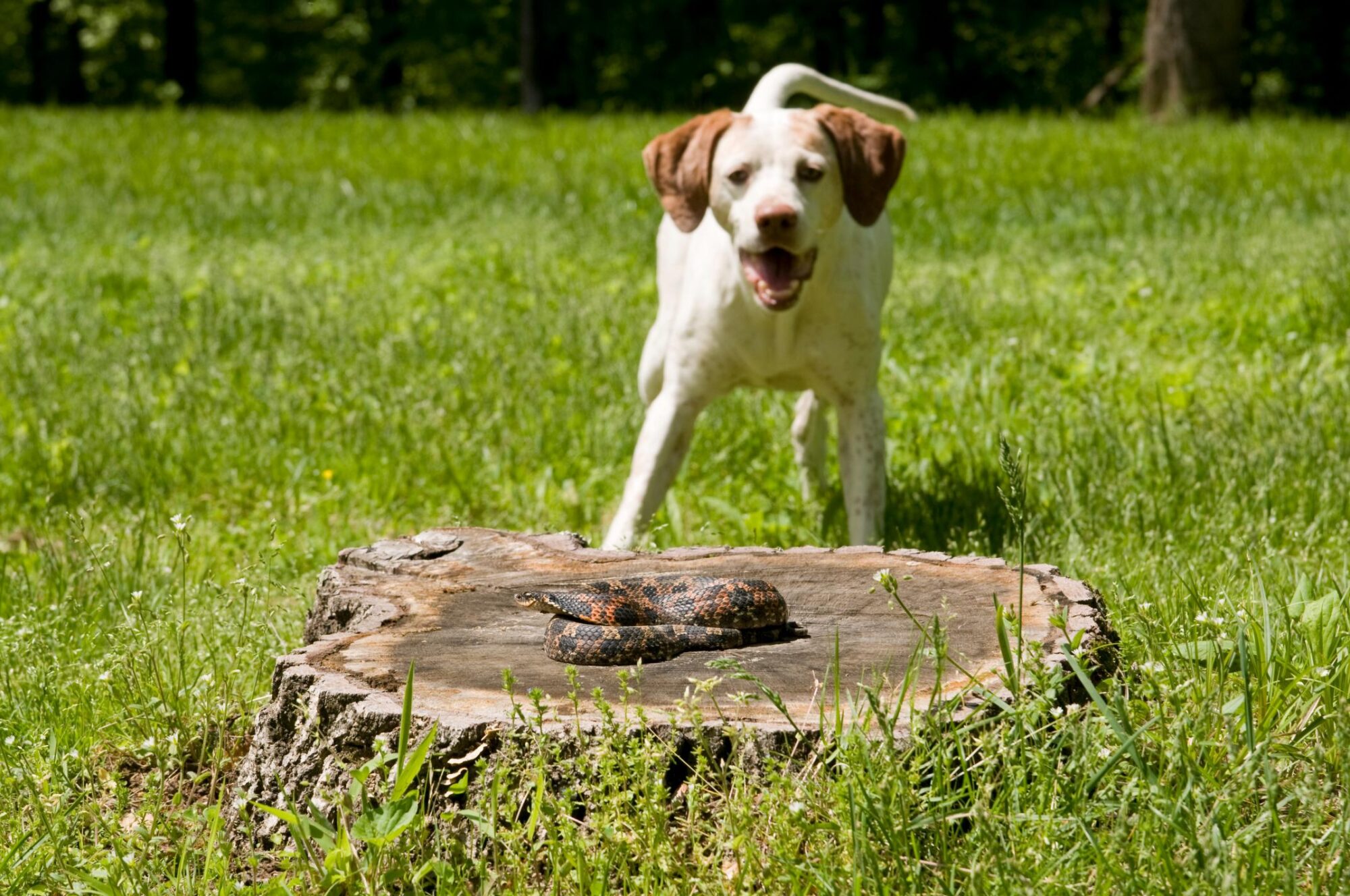Rattlesnakes & Pets: What Mesa Pet Owners Need to Know

Living in Mesa, Arizona, comes with plenty of perks—sunny skies, stunning desert scenery, and, of course, the occasional encounter with Arizona wildlife. While some critters are fun to watch from a safe distance, rattlesnakes are the kind of neighbors you don’t want your pets meeting up close. At Curem Vet Care, we know how nerve-wracking it can be to think about snake bites in pets. That’s why we’re here to help you navigate prevention and treatment and determine whether the rattlesnake vaccine is a good option for your furry friend.
How Dangerous Are Rattlesnakes to Pets?
A rattlesnake’s venom isn’t just painful—it can cause serious, even life-threatening complications, including:
- Severe pain and swelling (not the kind a belly rub can fix)
- Tissue damage and necrosis (venom can destroy healthy cells)
- Difficulty breathing (as swelling affects the airway)
- Blood clotting issues (which can lead to internal bleeding)
- Organ failure in severe cases
Smaller pets are at higher risk because their bodies process venom more quickly, but any bite is an emergency. If your pet has a run-in with a rattlesnake, immediate veterinary care is a must—no waiting, no “let’s see how they do.”
Rattlesnake Vaccine: Is It Worth It?
The rattlesnake vaccine isn’t a free pass to let your dog sniff every bush in the desert, but it can help reduce the severity of a bite and buy you extra time to get to the vet. It’s especially recommended for:
- Dogs that love hiking, camping, or backyard exploring
- Pets living in high-risk areas (which, let’s be honest, includes most of Mesa)
- Curious pups who believe every moving thing is a new friend
Even with the vaccine, a snakebite is still an emergency—think of it like wearing a seatbelt: it won’t prevent a crash, but it can help lessen the impact. Not sure if it’s right for your pet? A quick chat with Curem Veterinary Care can help you decide.
Keeping Your Pet Safe Outdoors
You can’t bubble-wrap your pet (though we wish we could), but you can take steps to minimize their risk of an unwanted snake encounter:
- Stick to clear paths. Tall grass and rocky areas are prime snake real estate.
- Leash up. Off-leash pets are more likely to wander into trouble.
- Keep an ear out. That telltale rattle isn’t just a sound effect for Western movies—it’s a warning!
- Train for safety. Snake avoidance training can teach dogs to steer clear of danger.
- Snake-proof your yard. Remove debris where snakes can hide, and consider snake fencing if you’re in a high-risk area.
A little prevention goes a long way in keeping your pet’s outdoor adventures safe and fun.
What To Do If Your Pet Gets Bitten
Even with all the precautions in the world, sometimes bad luck strikes. If you suspect a snake bite in pets, here’s what to do:
- Stay calm. Panicking won’t help your pet (or you).
- Limit movement. If possible, carry your pet to slow the spread of venom.
- Seek emergency care immediately. Home remedies won’t cut it—this is a job for professionals.
- Call ahead. If the bite occurs during our office hours, call us to give us a heads-up so we can be ready when you arrive. In some situations, you may be referred to an emergency vet. For after-hours emergencies, we recommend these emergency practices:
- VCA Animal Referral and Emergency Center of Arizona, 1648 N Country Club Dr, Mesa, AZ 85201, (480) 898-0001
- 1st Pet Veterinary Centers – Mesa, 5404 E Southern Ave, Mesa, AZ 85206, (480) 924-1123
Time is everything when it comes to snakebites, so don’t wait and see—get to the vet ASAP.
Keeping Your Mesa Pets Safe
Desert life comes with its fair share of adventure, and we want to make sure your pet enjoys it safely. Whether you’re looking into the rattlesnake vaccine, need advice on pet safety outdoors, or (hopefully never) require urgent care after a bite, the team at Curem Vet Care is here for you. Call us today at (480) 787-0544 to schedule an appointment—because a bit of prevention now is much better than an emergency later!
